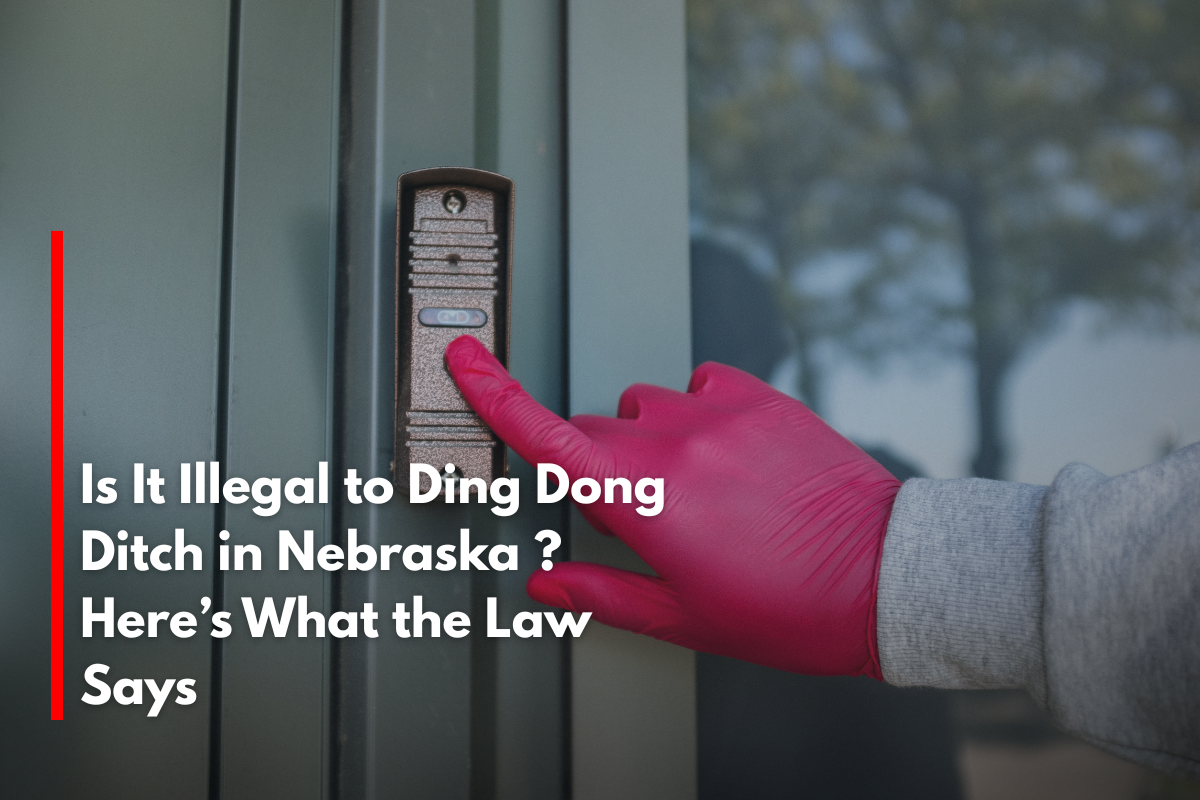While “ding dong ditch”—ringing someone’s doorbell and running away—is often seen as a harmless childhood prank, in Nebraska, this activity can have real legal consequences. Here’s an in-depth look at what the law says and what you need to know in 2025.
Ding Dong Ditch Defined
Ding dong ditch involves approaching someone’s house, ringing the doorbell (or knocking), and fleeing before the resident answers the door. While it might seem innocent, it technically involves stepping onto someone’s property without permission.
Nebraska Law: Unlawful Intrusion and Trespassing
Nebraska has strict laws centered on property rights and privacy. The main laws that can apply to ding dong ditch are:
1. Unlawful Intrusion
Nebraska’s “unlawful intrusion” law makes it illegal to enter someone’s private property, including porches and entryways, without consent—especially if the area isn’t open to the public.
Stepping onto someone’s porch just to ring their bell (without their permission) can qualify as unlawful intrusion.
Unlawful intrusion in Nebraska is a Class I misdemeanor for the first offense. Repeat offenses can escalate to a Class IV felony.
2. Criminal Trespass
Nebraska’s criminal trespass laws (Neb. Rev. Stat. §§ 28-520, 28-521) reinforce these property protections. Entering or remaining on private property without the owner’s consent is a crime.
First-degree trespass: entering a building or occupied structure without permission is a Class I misdemeanor.
Second-degree trespass: knowingly entering someone’s land or property (such as a porch), without consent or defying a posted notice or order to leave, is a Class III or II misdemeanor, with increasing penalties for repeat or aggravated conduct.
Penalties can include fines, jail time, and a criminal record.
Other Potential Charges
Depending on how the prank is carried out, ding dong ditch could also lead to charges such as:
- Disorderly Conduct: If the prank scares or harasses the resident.
- Harassment: If targeted repeatedly at the same person, or if the victim feels threatened.
Why It’s Taken Seriously
Homeowners may not know whether an intruder means harm—especially late at night or after multiple incidents. Police and courts in Nebraska take property and privacy rights seriously, which means a seemingly harmless prank could end up as a misdemeanor or worse.
Real-World Consequences
If caught, pranksters—especially teens—may face:
How to Stay on the Right Side of the Law
Don’t enter private property without clear consent.
Avoid pranks that involve violating someone’s space or privacy.
If asked to leave or confronted, do so immediately.
Ding dong ditch is not harmless fun under Nebraska law. Stepping onto someone’s property (even just a porch) without permission can constitute unlawful intrusion or trespassing—a misdemeanor criminal offense, and even a felony for repeat offenders. The best way to have fun is by respecting others’ privacy and following both the spirit and letter of the law.
If you’re looking for a legal way to joke around, choose pranks that don’t involve private property or personal space—and always respect requests to stop.
Sources
[1] https://collincountymagazine.com/2025/07/05/is-it-illegal-to-ding-dong-ditch-in-nebraska-heres-what-the-law-says/
[2] https://nebraskalegislature.gov/laws/statutes.php?statute=28-520
[3] https://nebraskalegislature.gov/laws/statutes.php?statute=28-521
[4] https://www.criminaldefensene.com/nebraska-trespassing-laws/
[5] https://codelibrary.amlegal.com/codes/elwoodne/latest/elwood_ne/0-0-0-3209











